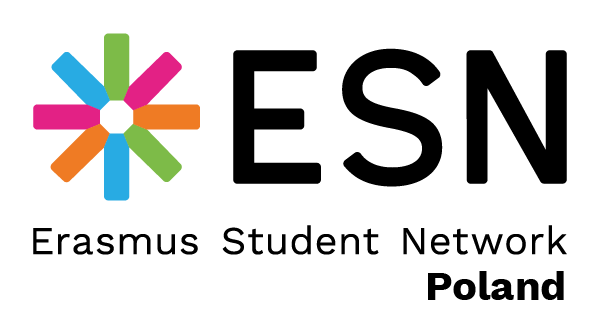Investing in the skills of young people is an investment in the future of individuals and European society in general. A well-skilled youth is essential for economic growth much needed in times of inflation, a housing crisis, and war in Europe. Providing youth with the necessary skills, as well as training opportunities increases their productivity, competitiveness, and innovation helps to prepare them for entering the labour market, and overall improves their job prospects. Moreover, developing skills and acquiring knowledge can have a positive impact on young people's self-esteem and personal growth, as well as their ability to contribute to society. In greater scope, it can even increase social mobility and promote social inclusion in our society. Said skills can be gained in various ways, for example by engagement in volunteer organisations or participation in academic mobility.
European Year of Skills is an initiative launched by the European Commission in 2023, with the aim of promoting the importance of learning and acquiring skills throughout life, and supporting individuals and organisations in enhancing their skills and competencies. This year’s objective is to raise awareness and encourage individuals, employers and policymakers to invest in skills development and training, so as to create a more skilled and competitive generation of Europeans - Erasmus Generation. ESN Poland welcomes this decision with excitement as focusing on the skills of young people that can easily be seen as a natural extension of 2022’s European Year of Youth.
The Erasmus+ programme provides students with the opportunity to study, work, or volunteer abroad, gaining valuable experiences and skills that will benefit them in their personal and professional lives. The programme offers a unique learning experience that goes beyond the traditional classroom setting, providing students with opportunities to develop a wide range of skills that will serve them well throughout their academic and professional careers.
One of the most significant skills students gain through the Erasmus+ mobility programme is language proficiency. Spending time abroad exposes students to new cultures, and ways of life, and challenges them to improve their language skills. In addition to them, students who participate in the Erasmus+ mobility also develop a wide range of intercultural competencies. They learn how to navigate cultural differences, understand and appreciate diverse perspectives, and work effectively with individuals from diverse backgrounds.
The Erasmus+ programme also provides students with opportunities to gain professional experience in their chosen field. Through internships, students can put their skills into practice, gain hands-on experience, and build their professional portfolios. This experience can be highly valuable when seeking employment after graduation, as it provides students with a competitive edge in a demanding job market. Finally, the Erasmus+ mobility programme provides students with opportunities to expand their personal and professional networks. They meet new people from diverse backgrounds, form international friendships, and build relationships with individuals in their chosen fields. Networks as such can be invaluable in the future, providing students with access to new opportunities, resources, and support as they navigate their careers.
Placing ourselves in a different perspective, and engaging in student organisations, such as Erasmus Student Network, also stands for unique opportunities to develop a range of valuable skills that will serve them well throughout their personal and professional lives. Whether it is through leadership roles, committee work, or volunteering, student organisations offer students the chance to put their ideas into action, collaborate with others, and take on new challenges.
One of the most important skills that students gain through involvement in student organisations is leadership. Through leadership roles students learn how to work with others, delegate tasks, make decisions, and motivate teams to achieve common goals. In addition to leadership skills, students who are involved in student organisations also develop their organisational and project management skills. Through organising events, fundraising campaigns, and other activities, they learn how to plan, budget, and execute projects, as well as how to manage time and resources effectively.
Another key skill that students acquire through involvement in student organisations is teamwork. Working on projects and initiatives with others requires students to collaborate, communicate successfully, and understand the perspectives of their peers. In order to present the common work they develop their public speaking and presentation skills. Whether it is through leading meetings, making presentations, or speaking on behalf of the organisation, students learn how to articulate their ideas and thoughts effectively and persuasively.
Finally, student organisations provide students with opportunities to volunteer and give back to their local communities. Through volunteering, students learn the importance of community service, as well as the satisfaction of making a positive impact on others. These experiences can be highly rewarding and help to build a strong sense of personal and social responsibility.
In the course of this year, ESN Poland will closely monitor both national and European developments in relation to the European Year of Skills. We call on both national and European authorities to include in their agendas for this year the following points:
- better promotion of mobility opportunities in the framework of the Erasmus+ programme with a strong focus on Erasmus+ internships and other types of mobility oriented towards gaining practical skills recognised on the job market,
- increasing funding and better support for participants of the Erasmus+ programme in order to make it more inclusive and accessible, especially for the young people with fewer opportunities which will allow equal skills development among all youth and provide opportunities for all,
- improvement of recognition of volunteer work in order to encourage students to further involve and engage with volunteering organisations, providing a space to develop useful skills that can later be used in a professional environment.
We believe that through these actions, members of the Erasmus Generation - international students and young, active and engaged people will be able to exercise their opportunities fully and in return, contribute to the enrichment of our society.
